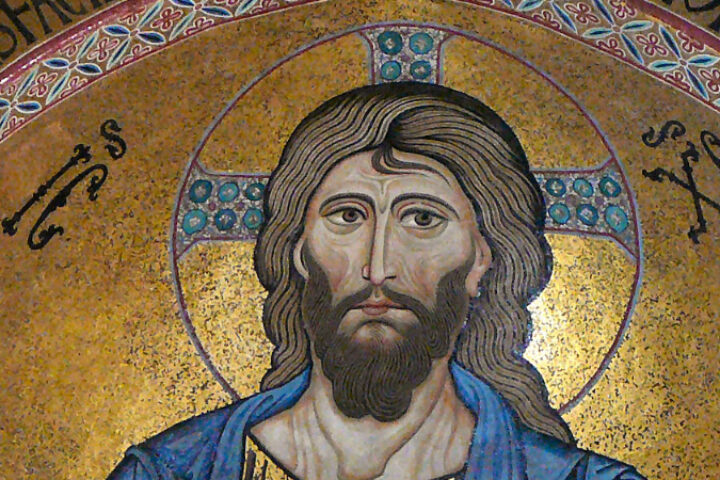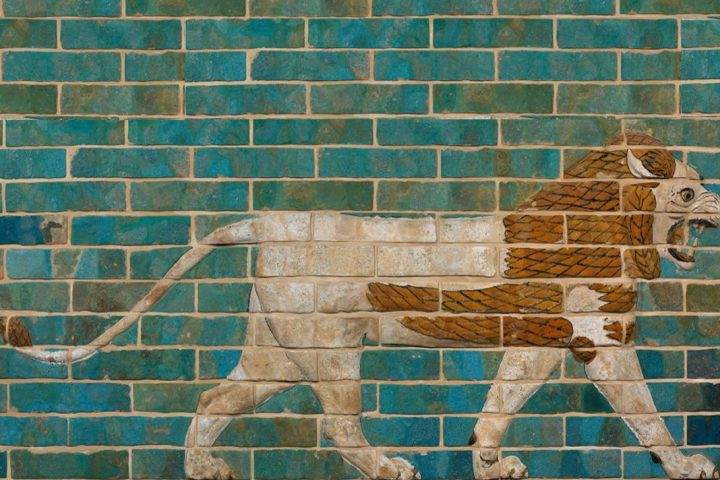Sermons by Bernard Bell (Page 2)
Upward I Look and See Him There
Hebrews 3:1-6 (NIV)
We return to the Book of Hebrews for seven weeks this summer. The author repeatedly presents Christ Before Us. He is to be the object of our attention: “take a good hard look at Jesus” (3:1 The Message). Where is he? He has gone before us into the very presence of God where he now ministers as our great High Priest on our behalf. Therefore we can boldly approach the eternal throne of grace to receive mercy and find grace.
Bringing Many Sons and Daughters to Glory
The eternal Son, radiance of God’s glory, left the realms of glory to become human. After his death and resurrection he returned to God’s glory, where he is crowned with glory and honor. But God’s desire is to bring many sons and daughters to glory, following the path pioneered by the Son. Many family histories have skeletons in the closet, people who have brought shame rather than honor. Most of us have our own shame. But Jesus is not ashamed to call us his brothers and sisters, or to have us, his younger siblings, tag along behind him. But we do need to keep him in sight.
But We See Jesus
Hebrews 2:5-9
We have just celebrated Good Friday and Easter Sunday, remembering Jesus Christ, “crucified, dead and buried… On the third day he rose again from the dead,” as we confess in the Apostles’ Creed. But there is more: “he ascended into heaven, and is seated at the right hand of God the Father almighty.” We tend to forget Ascension Day, but it is a vital part of the story of Jesus. We return to the Book of Hebrews to consider Jesus, who was made low to be human like us, and subsequently exalted as the one true human into God’s presence.
Everlasting Father
Isa 9:6
This third Sunday of Advent is Gaudete Sunday, meaning Rejoice! Yet Advent is a season of waiting in anticipation and hope. How do we rejoice while waiting? We consider the third name given to the child that is born, the son that is given: Everlasting Father.
Paying Attention to Jesus
Heb 2:1-4
It’s Labor Day weekend, the traditional end of summer and start of a new school year. But many students have been back in class for two weeks already. We hope that they are learning again how to pay attention in class. Perhaps their teachers have given a pep talk: “You must pay the most careful attention to what you hear else…” An exhortation to listen and a warning of the consequences for not doing so: “…else you’ll fail the test, your GPA will suffer, and you won’t get into your choice of school.” The preacher to the Hebrews does a similar thing. After presenting the excellence of the Son in whom God has spoken, he exhorts and warns: “We must pay most careful attention to what we have heard, so that we do not drift away.” Throughout his sermon he urges us to pay attention to Jesus.
He Whom Angels Worship
Heb 1:5-14
God spoke in the past to Israel through the prophets, and God has spoken in these last days to us in the Son. On the Emmaus Road Jesus brought these two together, explaining “what was said in all the Scriptures concerning himself.” After his magnificent opening sentence, the author of Hebrews also brings them together, showing how seven OT texts point to Jesus. They reinforce his claim that Jesus has become far superior to the angels. Indeed, Jesus is worthy of worship by angels and by us.
Name Above All Names
Heb 1:2b-4
“What’s in a name?” said Juliet to Romeo. “That which we call a rose by any other name would smell as sweet.” But names do matter. We all bear names, and have preferences about how we want to be called. God puts his name on people. OT Israel bore God’s name. God gave the risen and ascended Jesus a name above all names. The people of the New Jerusalem will bear the name of God and the Lamb. What does it mean to bear God’s name?
God Has Spoken
Heb 1:1-2
We launch a new sermon series, on the Book of Hebrews, entitled Christ Before Us. In the past God spoke to Israel through the prophets, in words preserved as Israel’s Scriptures, what we know as the Old Testament. God has spoken again in his Son, who both fulfills and is better than those Scriptures. He became like us in our humanity, to offer his own self for our atonement, so that we might become like him. The book repeatedly places Jesus before us, urging us to look to Jesus, to see him, to consider him. It also shows how Jesus has gone before us, faithful to the end. He is our faithful forerunner, whom we are called to faithfully follow.
Light at the End of the Tunnel
Dan 12
As we emerge from the Omicron wave of Covid and mark two years since PBCC closed its campus at the beginning of the pandemic, the light at the end of the tunnel looms large. But for Russia’s war in Ukraine there is as yet no light at the end of the tunnel; the train is still heading further into the darkness. Daniel asked how long it would be till the end of the time of distress. He is given different answers: a time, times and half a time; 1290 days; and 1335 days. How far away is the light and what does the light bring?
Faithful Resistance
Dan 11
The world admires the courageous resistance of the Ukrainian people and President Zelensky in the face of the brutal Russian invasion. Is it possible to mount an effective resistance without sinking to the same brutality as the invader? Both Daniel and Revelation are resistance literature, written to encourage God’s people to resist evil while remaining faithful to him. Daniel 11 portrays human empire sweeping over God’s faithful people. How do they resist?
Behind the Scenes
Dan 10
Russia has made a move on Ukraine. In Daniel’s day it was the Persian Empire that was expanding its territory, only to later be overrun by the Greek empire of Alexander the Great. There was more going on than a sequence of empires. Daniel is told that world events of his day reflected a cosmic conflict behind the scenes. We go behind the curtain to consider these extraterrestrial realities.
How Long?
Dan 9
“How long, Lord?” asked the Psalmist. “How long?” we ask also. How much longer will the pandemic continue? Is the end really in sight this time? When Babylon fell to the Persians, Daniel sensed that the end of Jerusalem’s desolation was nigh. He read in Jeremiah that it would last 70 years, and he had already been in Babylon for 66 years. The time was nearly up. So, in one of the great prayers of the Old Testament, Daniel prayed for God’s mercy. But he was told that the problem was much worse than he thought. It would take seventy sevens—the (in)famous Seventy Weeks of Daniel 9.


